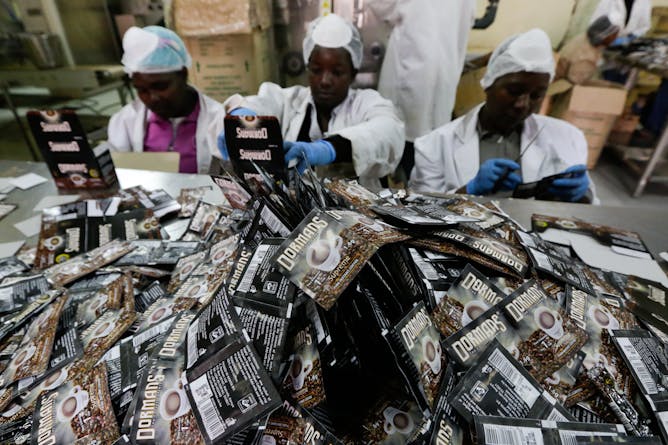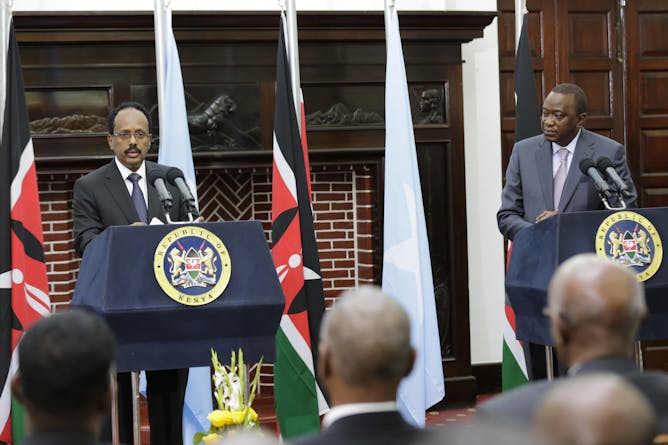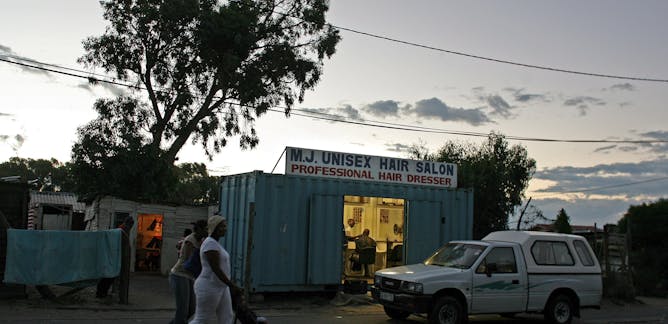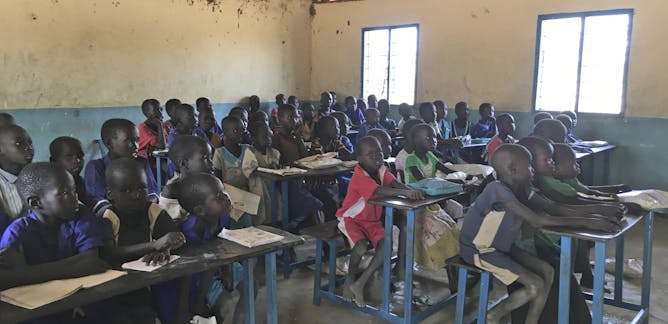|
A dominant narrative about industrial development in African countries is that it’s a lost cause. This needs to change, contends Wim Naudé. This is because new technologies, vibrant entrepreneurship and a growing middle class are capable of bringing about industrialisation, as long as governments don’t create stumbling blocks.
Diplomatic relations between Kenya and Somalia have been rocky ever since Somalia took steps to auction blocks in a disputed maritime territory in the Indian Ocean. Both Kenya and Somalia have laid claim to the territory, which has prospects of vast oil and gas deposits. The dispute has been compounded by foreign interests. Patrick Muthengi Maluki traces the diplomatic row and concludes that the East African nations should shun foreign
interference and focus on their shared goals.
|

Workers pack coffee sachets at the Dormans coffee factory in Nairobi, Kenya.
EPA/Daniel Irungu
Wim Naudé, United Nations University
With an outdated story that gives up on manufacturing, Africa will fail to close the huge digital gap it still faces.
|

President Mohamed Abdullahi Mohamed of Somalia (left) and Kenya’s President Uhuru Kenyatta.Their countries are in a row over territory.
Daniel Irungu/EPA
Patrick Muthengi Maluki, University of Nairobi
As Kenya and Somalia scramble for offshore oil and gas, foreign investors wait eagerly on the sidelines
|
Politics + Society
|

Nicolette V Roman, University of the Western Cape
Research shows that abuse, violence and poor relationships in families may have dire consequences for society, and specifically children.
| |

Abdul-Jalilu Ateku, University of Nottingham
A community driven approach to border patrol could be more useful than providing arms for border guards
|
|
|
From our international editions
|

David King, IUPUI
Not everyone's a fan of this fundraising approach. But it does bring the needs of children in developing communities to the attention of many Americans.
| |

Mateus Renno Santos, University of South Florida; Alexander Testa, The University of Texas at San Antonio
Since 1990, the homicide rate has declined by 20%. Researchers are still figuring out what's behind the trend: increased incarceration, improvements in the economy or even aging populations.
|
|
|